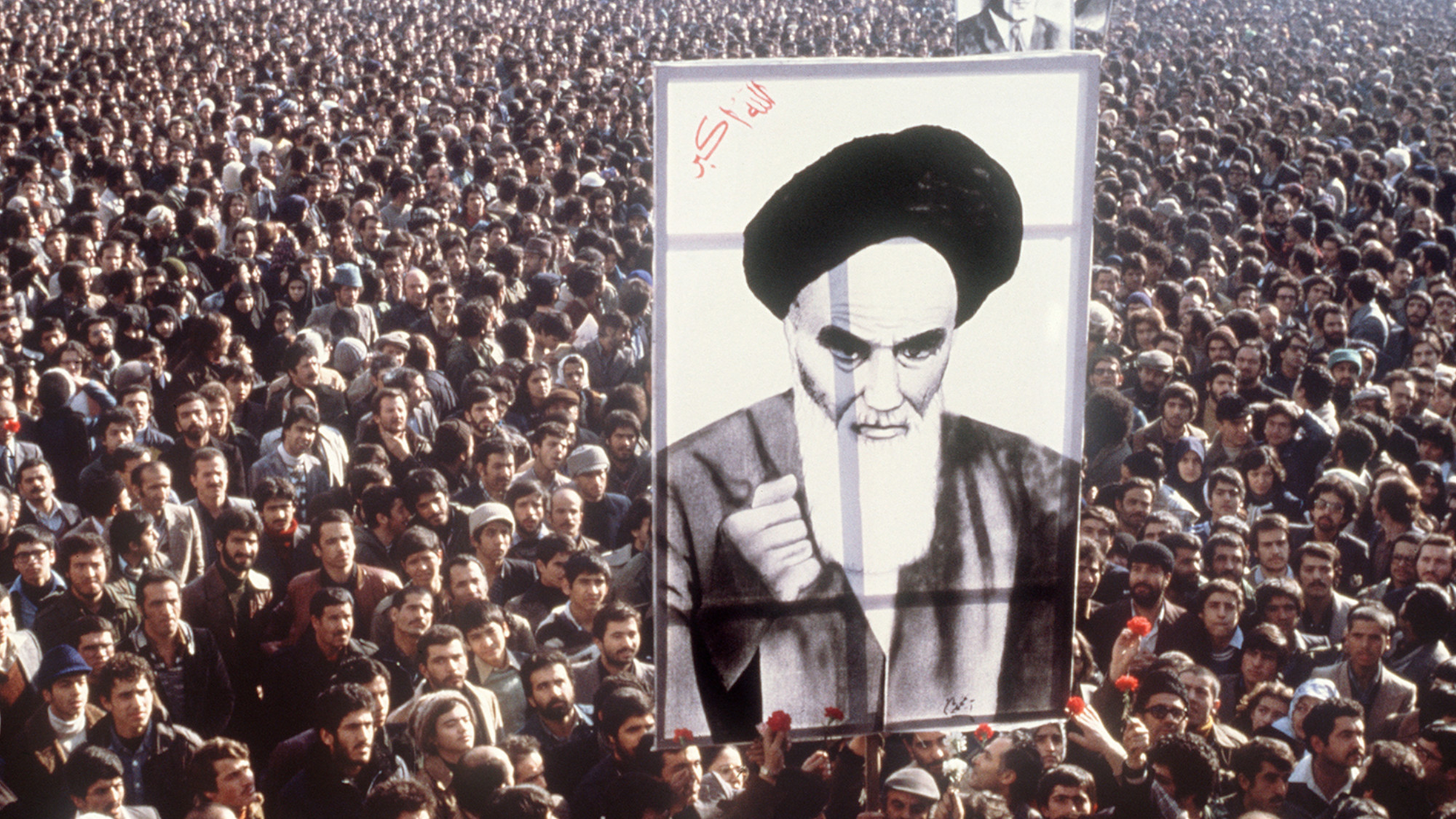Book reviews: 'King of Kings: The Iranian Revolution' and 'Gwyneth: The Biography'
How the Iranian Revolution began and Gwyneth Paltrow's life in the spotlight

A free daily email with the biggest news stories of the day – and the best features from TheWeek.com
You are now subscribed
Your newsletter sign-up was successful
'King of Kings: The Iranian Revolution' by Scott Anderson
"It's an event that ranks among the most seminal in history," said Tunku Varadarajan in The Wall Street Journal, and yet the Iranian Revolution of 1978–79 left behind questions that have "tormented historians" ever since. The uprising that toppled the U.S.-backed shah and installed a brutal anti-Western autocratic Islamist regime at the heart of the Middle East unfolded quickly, taking U.S. leaders by surprise. Suddenly, the shah, Mohammad Reza Pahlavi, was gone, and Ayatollah Ruhollah Khomeini, an elderly religious fundamentalist, had returned from exile to seize control of a country that in the past three and a half decades had seen a dramatic rise in per capita income, life expectancy, and women's rights. Scott Anderson's "sweeping, gripping" new account of the revolution offers compelling answers to lingering questions and "makes past times and people spring to life."
"This is an exceptional and important book," said Mark Bowden in The New York Times. "Scrupulous and enterprising reporting rarely combine with such superb storytelling." And Anderson shows us what went wrong, starting with his portrait of the shah. "An American creation first and last," the shah "had lived in a make-believe world," insulated by personal wealth and by a secret police force, Savak, that "terrorized anyone who refused to play along." Besides effectively closing himself off from signs of unrest, he was, even after 37 years in power, "incapable of making hard decisions," and U.S. intelligence was too blind to provide useful guidance. Anderson focuses most of his attention on the missteps of the U.S. and the shah, said Arash Azizi in The Atlantic, and "he's weaker in examining the diverse factions of Iranians who opposed the shah." Many Iranians who joined the swelling 1978 protests were angered by rising inequality and weren't seeking a theocracy. But Khomeini happened into prominence when the uprising required a leader. In King of Kings, the rise of the Islamic Republic comes across as "not some historical inevitability but, in many ways, an accident."
"But a revolution, unlike a coup, isn't the work of individuals alone," said Daniel Immerwahr in The New Yorker. "It requires mass support," and the Iranian revolution eventually pulled 2 million people into action, a share of the population larger than in any other 20th-century revolution. "The fact that the revolution was unexpected doesn't mean it was contingent." Even the protesters couldn't have predicted the course Iran was about to take: the execution of thousands of Khomeini's perceived enemies, militants' seizure of 66 hostages at the U.S. Embassy, and the unbroken nearly half-century reign of an unpopular dictatorship. "As Anderson's book suggests, an event that is improbable can still be irreversible."
The Week
Escape your echo chamber. Get the facts behind the news, plus analysis from multiple perspectives.

Sign up for The Week's Free Newsletters
From our morning news briefing to a weekly Good News Newsletter, get the best of The Week delivered directly to your inbox.
From our morning news briefing to a weekly Good News Newsletter, get the best of The Week delivered directly to your inbox.
'Gwyneth: The Biography' by Amy Odell
"Gwyneth Paltrow, once known as an Oscar-winning actress, is perhaps our finest unrelatable relatable," said Karen Heller in The Washington Post. "A woman who has been beautiful, tall, thin, rich, and famous for most of her 52 years," she is now widely known as a wellness mogul who has built her Goop empire on a "girlfriend-y" vibe, presenting as "an oversharer seeking sexual bliss." Amy Odell's "dishy, often delicious" new biography of this singular celebrity is thin on Paltrow's pre-stardom years, when she was growing up in L.A. and Manhattan as the daughter of actress Blythe Danner and producer Bruce Paltrow. By 26, Gwyneth was the first lady of Harvey Weinstein's Miramax Films—an uncomfortable position that apparently hastened her retreat from screen acting a few years later. Fortunately, Odell's book is strongest on the years since.
Odell's is an unauthorized biography, "and all the better for it," said Ashley Baker in Air Mail. It's full of humiliating nuggets— about Paltrow's sex life, her being rejected by Vassar, her lasting only a year in college. "Even those of us who are embarrassingly au courant with People and Page Six learn a lot." And yet Paltrow managed to get what she wanted, landing on fashion covers, dating and marrying famous men, and eventually launching her controversial lifestyle empire. For all the ridicule she's endured, and losses she's logged, she has developed a nice clothing line and takeout food business. And she's still close to her best friend from kindergarten, "which should count for something."
"The difficulty with all this is that Paltrow is a charmless subject who never rises to the level of monstrous," said Emma Brockes in The Guardian. Odell doesn't take a stand on even Paltrow's most divisive episodes, let alone how Paltrow came to hold such an elevated position in American culture, so we're left with a story that delivers too little drama. At least the "perfectly enjoyable" first half includes a steady stream of gossip. And some of its most compelling passages show us the young star-to-be learning to act by following her mother to summer theater festivals. In those scenes, "Paltrow is entitled, sometimes foulmouthed, intensely focused, and really comes alive."
A free daily email with the biggest news stories of the day – and the best features from TheWeek.com